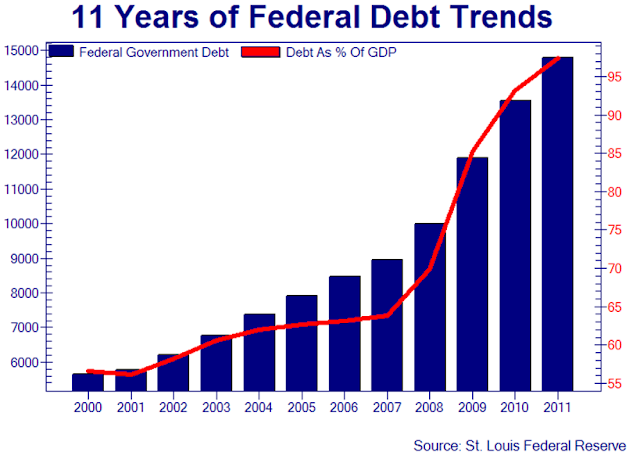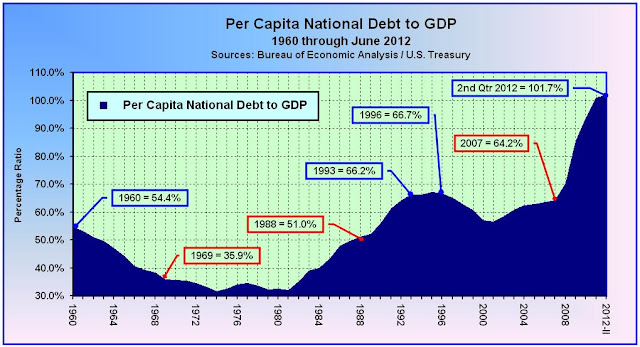Referring back to my perceived Roles of Government post, it is my aim to go into more detail regarding the role of government in providing welfare assistance to its citizens. I intend to lay out a few general principles and later write more in depth about specific assistance topics. (In my naivety I am unsure what the politically correct term is for welfare/supplemental assistance/entitlement programs may be. Thus, hopefully as becomes more apparent throughout the post, I am not degrading individuals who qualify for government assistance. Again, less wrath, more grace :)
What I think –
1) The wealthiest nation in the world (and possibly history), should provide for the basic needs of its citizens.
What I currently disagree with are the systems of meeting these needs, and perhaps more significantly, what is defined as a need. Expanding upon the latter, I believe our most basic needs are food/water, shelter, clothing, and to a degree health care. Thus in part, I agree with the provision of food sustenance (food stamps, free/reduced school lunches), subsidized/federal housing (Section 8 Housing), clothing assistance, and nationalized health care.
A person working 2000 hours per year (50 working weeks x 40 hours per week, 2 weeks unpaid vacation) making minimum wage ($5.15) in 2000 would earn $10,300 per year and be in the 13.25% percentile of income earners in the entire world. Or stated another way, such an individual would earn a greater annual income than 86.75% of people worldwide.
I understand the cost of living in the United States is indeed higher, however I also believe a large part of this is self-inflicted based on what we define as a need. I acknowledge my statements about defining what a need is are vague, but in an effort to keep my post somewhat condensed, I will expand upon each individual need in future posts.
Update (3/1/14):
Global Rich List has updated it's data to 2008. Based on 2008 data, a person working 40 hours a week with 2 unpaid weeks of vacation per year and making minimum wage ($7.25) would be in the top 8.66% income earners in the world.
2) Disincentives should exist for utilizing public assistance programs.
Currently the U.S. government is experiencing out of control spending: 4 straight years of 1+ trillion dollar deficits, national debt is now more than 100% of our gross domestic product (GDP), the federal government received $2.4 trillion in revenue and spent $3.6 trillion, 50% more than it brought in...
By a rough calculation of the 2012 Federal Budget, 37.7% of our federal budget goes towards Medicare, Medicaid, unemployment, food, and housing assistance programs. Add in social security and you get 57.7%. For comparison sake, defense spending accounts for 19.3%. With an aging population, many of these numbers are expected to continue expanding at even greater rates.
I believe in order for a government entity to offer supplemental assistance and contain/control costs, disincentives must exist for utilizing these programs. Currently my two favorite disincentives are the exchanging of freedom for assistance and the concept an individual will be responsible for paying back into the system what they have received. Examples include:
- Accepting subsidized housing while exchanging the freedom of choosing where to live (currently practiced).
- Upon acquiring employment following a period of accepting unemployment assistance, an individual would begin to pay back into the unemployment system what they received (not currently practiced to my knowledge).
3) Public assistance is available to all citizens.
Your income does not determine your eligibility. What determines your eligibility is your citizenship (sorry illegal immigrants, more on you later though). My immediate feelings are this will rub people the wrong way. However, as I expand upon proposed disincentives for using public assistance in future posts, I hope I will achieve clarity by showing how assistance programs are available for those who need it, but not beneficial for those who are well off enough not to need them.
In addition to public assistance available to all citizens, there will also be private systems along side public systems. Thus individuals will be able to use a combination of public systems (Social Security) and private systems (401ks, pensions).
4) The federal government will provide a bare bones basic level of care and leave individual states the freedom to expand assistance programs with state tax dollars.
I favor giving individual states greater autonomy to determine the extent of a wide range of policies and provisions, including the degree of public assistance. States that are in favor of a more Cadillac coverage system will have the freedom to raise more funds (or cut other spending) to pay for their assistance programs compared to another state that elects to utilize only the federal assistance programs.
5) While efficient, I believe our society suffers by the government playing Robin Hood and essentially taking from some to give to others.
I acknowledge a government does need to tax its citizens in order to provide stability, protection, and fulfill other roles. However, there is a point where I feel the government begins to tell its citizens: “You don’t know what’s best for you, so we the government have decided to take your money and spend it for you, because we are smarter and wiser."
This being stated, it is we the people who elect leaders, and therefore I believe we all suffer from a similar mindset. A mindset of we would rather elect leaders who will pass into law or tax policy our preferred agenda. Doing so is more efficient and less frustrating, however, I fear it only divides our country rather than create slow, sustainable progress.
Much like the recent Presidential Debates, I again acknowledge these concepts are currently vague. Rest assured, I will go into excruciating detail in future posts.
Next Week’s Topic: Fantasy Football Part 3: Season Update






